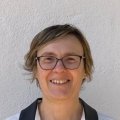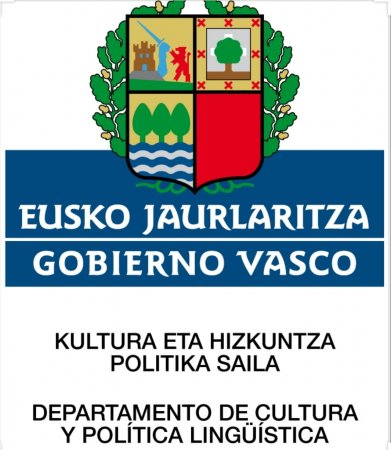
Hizkuntza Proiektuak ikas-egoeren markoan
Uda Ikastaro honetan, ikastetxeetan komunikazio gaitasunaren irakaskuntza ikuspegi integral eta pragmatikotik diseinatu ahal izateko gakoak eskainiko dira.
Description
EAEren Hezkuntza Legeak eta gure kurrikulum ezberdinek aspalditik zehazten dute hizkuntza trebakuntzaren helburua komunikatzeko gaitasuna dela, eta gaitasun hori eleanitza izan behar dela ezinbestean. Komunikaziorako gaitasun hori garatzeko, legeetan ere jasota dago nolakoa izan beharko litzatekeen ildo metodologikoa: ekintzetara bideratutako irakaskuntza, eta ikas-egoeretan oinarritutakoa.
Planteamentu didaktiko hau guztiz bat dator Interakzionismo Soziodiskurtsiboak aspaldi proposatu izan dituen hizkuntzen irakaskuntzarako oinarri didaktikoekin, eta Uda Ikastaro honetan planteamendu horren eta ikas egoeren proposamenaren arteko lotura zuzenak erakutsi eta aztertuko dira, ikastetxeetan komunikazio gaitasunaren irakaskuntza ikuspegi integral eta pragmatikotik diseinatu ahal izateko.
Objectives
EAEko hezkuntza curriculumak zehazten dituen ikas-egoerak Lehen Hezkuntzako geletara eramateko bideak proposatzea.
Gure lurraldeko hizkuntza ofizialak eta atzerriko hizkuntzak gainerako arloekin integratzeko proiektu integraletan trebatzea.
Activity directed to
- University student
- Teachers
In collaboration with
Program
15-09-2025
Registro
Presentation by the Director of the activity
- Roberto Mielgo Merino | Begoñako Andra Mari Irakasleen Unibertsitate Eskola, BAM - Irakaslea
“Hizkuntza komunikaziorako konpetentzia ikas-egoeren markoan“
- Jaione Ibarra Atutxa | Begoñako Andra Mari Irakasleen Unibertsitate Eskola, BAM - Irakaslea
- Agurtzane Lauzirika Zugazaga | Begoñako Andra Mari Irakasleen Unibertsitate Eskola, BAM - Irakaslea
“Konpetentzia eleaniztuna eta Hizkuntzen Trataera Bateratua “
- Roberto Mielgo Merino | Begoñako Andra Mari Irakasleen Unibertsitate Eskola, BAM - Irakaslea
Break
“Arlo eta hizkuntzen arteko irakaskuntza integraturantz“
- Itxaso Vazquez Villa | Begoñako Andra Mari Irakasleen Unibertsitate Eskola, BAM - Irakaslea
TALDE LANA-Komunikazio proiektuak eta ikas-egoerak aztertu, moldatu, egokitu edota proposatu
Closing session
- Agurtzane Lauzirika Zugazaga | Begoñako Andra Mari Irakasleen Unibertsitate Eskola, BAM - Irakaslea
Directors

Agurtzane Lauzirika Zugazaga
BAM-Begoñako Andra Mari Irakasleen Unibertsitate Eskola, irakasle
Degree in Hispanic Philology at the University of Deusto (1990). Advanced studies certificate (DEA) in the field Psychodidactic at the UPV (2009). My interests throughout my professional career have been the following: On the one hand, classroom interaction from a classroom implementation-based perspective and, on the other hand, the acquisition of reading skills from a more constructivist perspective, to develop the reading comprehension competence in students of Primary Education (mainly). I carry out all this work at BAM Teacher Training University College teaching in the Primary and Pre-School Education Degree programmes. My teaching tasks are directly related to the area of Language Teaching or Didactics. She has extensive experience and relationship with the CAPV educational centres in the Basque Country, in continuing teachers training programmes of the Basque Government. She has especial emphasis on how studying and designing teaching sequences to acquire the reading comprehension competence in teaching “learn to read” and “learn by reading” from the reading plan.
Speakers

Jaione Ibarra Atutxa
Jaione Ibarra is a full professor at the University School of Magisterium Begoñako Andra Mari BAM in the Teaching Department of Language and Literature in the last 29 years. Degree in Basque Philology and Doctor in Applied Linguistics. In the Childhood and Primary Education programs, in addition to working in the functioning of discourses and oral and written didactics. She has taught many formations in the educational centers, especially in the comprehension of texts and in the teaching of oral and written texts. Currently, she is immersed in a research project focused on mathematics and comprehension within a research project of the Department of Education.

Agurtzane Lauzirika Zugazaga
BAM-Begoñako Andra Mari Irakasleen Unibertsitate Eskola, irakasle
Degree in Hispanic Philology at the University of Deusto (1990). Advanced studies certificate (DEA) in the field Psychodidactic at the UPV (2009). My interests throughout my professional career have been the following: On the one hand, classroom interaction from a classroom implementation-based perspective and, on the other hand, the acquisition of reading skills from a more constructivist perspective, to develop the reading comprehension competence in students of Primary Education (mainly). I carry out all this work at BAM Teacher Training University College teaching in the Primary and Pre-School Education Degree programmes. My teaching tasks are directly related to the area of Language Teaching or Didactics. She has extensive experience and relationship with the CAPV educational centres in the Basque Country, in continuing teachers training programmes of the Basque Government. She has especial emphasis on how studying and designing teaching sequences to acquire the reading comprehension competence in teaching “learn to read” and “learn by reading” from the reading plan.

Roberto Mielgo Merino
He holds a Degree in Basque Philology and a Postgraduate Degree in Literature and Literary Science from the University of the Basque Country. He began his career in research, obtaining two scholarships in the field of Literary Sciences, in 1993 and 1995, respectively. Since joining the initial teacher training program at BAM in 1996, his work has focused primarily on language teaching, particularly in multilingual contexts. In this area, his work has focused primarily on initial and continuing education and advising educational centers. He has extensive experience and extensive relationships with educational centers in the Basque Country, both in the continuing teacher training programs of the Basque Government, with a special emphasis on text grammar and its teaching, and in supporting educational centers in the design of language curricula and the implementation of the teaching sequence model developed by the University of Geneva. Likewise, he was a member of the UPV's ELEBILAB Research Team between 2015 and 2021.

Itxaso Vazquez Villa
Itxaso Vázquez is a lecturer at the Begoñako Andra Mari Teacher Training University College in Pre-school Education and Primary Education. In 2017 she graduated in Primary Education with a specialisation in Linguistic Diversity at School, and in 2023 she completed her master’s degree in Basque Linguistics and Philology. She is currently a PhD student in language teaching at the UPV/EHU, and her research focuses on language teaching in multilingual contexts that include a minority language, with special interest in the Integrated Language Teaching and the discursive and textual approach.
Registration fees
| Face-to-face | Until 30-06-2025 | Until 15-09-2025 |
|---|---|---|
| 25,00 EUR | 29,00 EUR | |
| - | 41,00 EUR | |
| - | 35,00 EUR | |
| - | 29,00 EUR | |
| - | 35,00 EUR | |
| - | 35,00 EUR |
Venue
Bizkaia Aretoa-UPV/EHU
Avenida Abandoibarra, 3. 48009- Bilbao
Bizkaia
Bizkaia Aretoa-UPV/EHU
Avenida Abandoibarra, 3. 48009- Bilbao
Bizkaia
Sustainable development goals
Agenda 2030 is the new international development agenda approved in September 2015 by the United Nations. This agenda aims to be an instrument to favour sustainable human development all over the planet, and its main pillars are the eradication of poverty, a reduction in equality and vulnerability and fostering sustainability. It is a unique opportunity to transform the world up to 2030 and guarantee human rights for all.

4 - Quality education
Guarantee quality education that is inclusive and equitable and foster opportunities for lifelong learning for everyone. Key issues: free-of-charge, equitable and quality education, access to higher education and training on an equal basis, education for sustainable development, suitable education centres for persons with disabilities, and safe, non-violent and efficient learning environments.
More information





